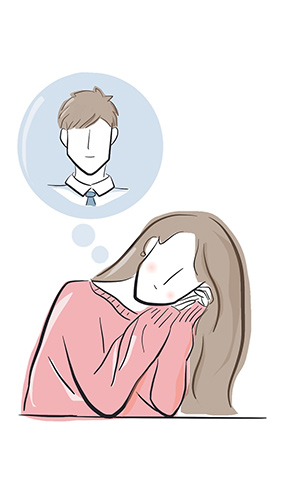
It is common that, over the years, the meaning of some terms changes for the people who use them. This phenomenon has to do with several factors, such as culture, the adoption of concepts from other languages, trends, the area in which they are used, people’s knowledge of its use, etc.
It is something that also happens with the terms of psychology. For example, the concepts of “anxiety attack”, “agoraphobia”, “depression”, etc., are terms that we can hear in colloquial conversations. Its use has become popular, but the meaning that people tend to give them and the one they are given by the discipline of psychology, tend to be very different between them.
There will be occasions when this difference in meaning will not have much importance, but will be in others. The way we use language is a reflection of how we understand the reality that surrounds us, so it can affect our interpretation of what we experience, our emotions and our behaviour.
One area in which this mismatch of the original meaning can cause problems is in relationships, more specifically sentimental ones. How many times have we heard phrases like “love can do everything”, “if he is not jealous he does not love you”, “whoever loves you makes you suffer”, “love is for life”, etc. All these statements hide an erroneous idea of what the phenomenon of “love” means, and it is confused with other phenomena such as falling in love and attachment. As it is, this confusion can cause problems.
So perhaps we need to redefine each of these terms again.
What are the differences between love, falling in love and attachment?
Meaning of Love:
Love (understood in a pure way, without taking other factors into account) is described as the genuine desire to want the best for the other. Depending on the type of relationship, love can be accompanied by different levels of complicity, affection, intimacy, physical contact, etc., but these do not define love as such, instead, they will give rise to one type of relationship or another, as it is well explained in our blog about the Sternberg Triangle.
Meaning of falling in love:
Falling in love is a phase that is normally understood as a state of joy in which the person feels romantically attracted to another. Factors such as expectations, physical attraction, the need for contact, mystery, etc. play in this process. It also often happens that, when we are in love, we are only able to see the other person’s virtues, without paying attention to his/her defects or without giving them importance.
Attachment meaning:
Attachment is understood as that bond that we establish with other people. Attachment is inherent in the human being’s development, as it happens with other mammals, and it begins to occur in the early life, between the baby and its main caregiver. This bond offers us protection and creates a relationship of trust and security with the caregiver, within which we learn to interact with others and with the world around us safely. It makes us social beings, with the need to live in community and to help each other.
The problem comes when this bond from childhood is not given correctly and does not offer us this confidence. As a result of this fact, 4 attachment styles have been found: secure, ambivalent, avoidant and disorganized. It is known that attachments that are not secure make us more likely to have poorer mental health, to perceive the world as uncontrollable and that our relationships throughout life are problematic, appearing phenomena such as jealousy, control, dependency etc. You can learn more about it in our blog “What is attachment and how does it affect us when it comes to relating?“
What problems can cause the confusion between these concepts?
The reason why we want to differentiate love from falling in love and attatchment is that all three can coexist in the same relationship, so it is easy to confuse them. There may also be confusion in family and friendship relationships, where falling in love would not enter, but love and attachment would.
With regard to falling in love, we have already said that it is a state in which we intensely live the relationship with another person, we idealize him/her and we become incapable of seeing his/her defects. However, it is a stage, it is not eternal, so when it is over, some people may decide to end the relationship, instead of continuing to cultivate the bond. Any option is licit to be taken, but you can run the risk of misunderstanding that stage of falling in love as “love”, hoping that a relationship should always be like when we are in infatuating.
As far as attachment is concerned, in relationships outside the scope of the couple it can also confuses us. For example: if a father or a mother does not want their child to study away from home, even though this is the young person’s desire, here the attachment is being problematic. In this case, attachment translates into a relationship of control and overprotection, which takes away freedom from the other. On the other hand, if love were allowed to play its role, we would have parents who, even if it hurts to have their son away, would do everything possible to help him leave, achieve his goals and be independent.
We can find similar examples in couple relationships, where one of the two members controls the other, shows jealousy, emotionally blackmails him/her, etc. At the other extreme there would also be behaviours such as punishing silences, ghosting, etc.
Getting over the effects of an insecure type of attachment can be difficult. To do so, it will be necessary to deconstruct concepts and preconceived ideas that are wrong, like that confusing idea of love that we have been talking about in this article. This deconstruction can be carried out by oneself, through reflection, self-criticism, bibliographic research, etc., but if we still notice that it is difficult for us to deal with it, we can seek professional help. A general health psychologist, or a couple therapist, can help us through dialectic, psychoeducation and cognitive restructuring.
Guillem Nicolau Coll
General Health Psychologist
Col. No.: B-02773











